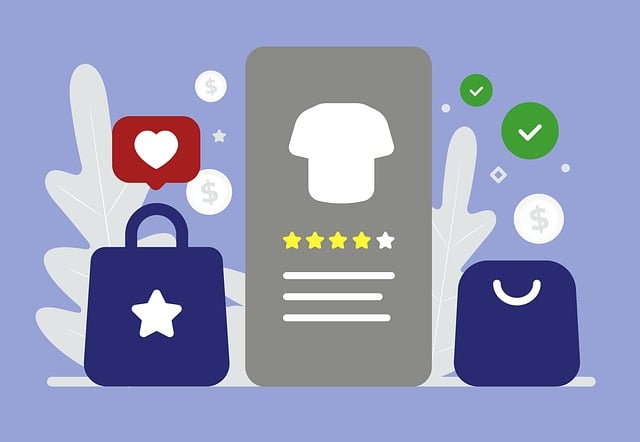Chatbots are transformative tools in e-commerce, enhancing customer engagement and operational efficiency through personalized assistance and real-time communication. These AI-driven systems employ natural language processing and machine learning to understand and respond to shoppers' needs, guide them through purchases, and offer tailored product recommendations based on individual preferences and past behaviors. By automating a range of tasks from FAQs to transaction support, chatbots for e-commerce ensure consistent, timely interactions and capture valuable insights that can inform business decisions and strategies, keeping businesses attuned to market demands and customer needs. Their integration across multiple platforms supports an omnichannel approach, providing the seamless brand presence customers expect from top e-commerce platforms. Advanced chatbots are not just innovative; they are a critical component for success in the competitive e-commerce landscape by driving sales, personalizing experiences, and fostering customer loyalty through sophisticated NLP capabilities that learn and adapt to user preferences over time.
When venturing into the realm of e-commerce, a chatbot for e-commerce serves as an indispensable tool for enhancing customer engagement and streamlining interactions. This article delves into the critical features that distinguish a proficient chatbot from its less effective counterparts, emphasizing how these elements contribute to a seamless shopping experience. From natural language processing that enables intuitive communication to personalization that tailors interactions based on user preferences, we’ll explore the capabilities essential for a chatbot in e-commerce. Additionally, we’ll examine advanced functionalities like visual product recognition and multi-channel deployment, which elevate the customer experience. Furthermore, understanding how to measure success through metrics and analytics is crucial for continuous improvement and maintaining compliance and security standards. This guide will equip you with the knowledge to select a chatbot for e-commerce that not only meets but exceeds customer expectations.
- Understanding the Role of Chatbots in E-Commerce Customer Engagement
- Key Features of Effective Chatbots for E-Commerce Platforms
- – Natural Language Processing (NLP) Capabilities
- – Personalization and User Profiling
Understanding the Role of Chatbots in E-Commerce Customer Engagement

In the realm of e-commerce, customer engagement is a pivotal factor in driving sales and fostering brand loyalty. A chatbot for e-commerce serves as an integral tool in this context, offering real-time assistance and personalized experiences to online shoppers. These intelligent systems are designed to understand customer queries, provide instant responses, and guide users through the purchasing process seamlessly. By leveraging natural language processing and machine learning algorithms, chatbots can analyze customer interactions and offer tailored recommendations based on past behavior and preferences, thereby enhancing the shopping experience. Additionally, chatbots can be programmed to handle a wide array of tasks, from answering FAQs to facilitating transactions, freeing up human resources for more complex customer service issues. This not only improves efficiency but also ensures that customers receive consistent and timely support at every touchpoint of their e-commerce journey.
Furthermore, chatbots for e-commerce are equipped with the capability to gather valuable insights from customer interactions, which can inform business decisions and strategies. They can track common issues or products of interest, enabling businesses to stock up on high-demand items or address frequently asked questions proactively. Moreover, these AI-driven systems can be integrated into various platforms, including social media, messaging apps, and websites, ensuring a uniform customer experience across all channels. This omnichannel approach is crucial for maintaining a cohesive brand presence and providing customers with the convenience they expect from an e-commerce platform equipped with a state-of-the-art chatbot system.
Key Features of Effective Chatbots for E-Commerce Platforms

When integrating a chatbot into an e-commerce platform, it’s crucial to consider advanced features that enhance customer experience and streamline operations. A chatbot for e-commerce should be equipped with natural language processing capabilities to understand and respond to user queries effectively. This allows customers to interact in a conversational manner, making the shopping process more intuitive and engaging. Additionally, these chatbots should be programmed to provide personalized product recommendations based on past interactions, purchase history, or browsing behavior, thereby increasing the likelihood of conversion.
Another key feature for effective chatbots in e-commerce is seamless integration with the platform’s inventory management system. This ensures that the chatbot can provide accurate information regarding product availability, sizes, colors, and stock levels in real-time. Furthermore, a well-designed chatbot can assist with customer service issues, handling common queries and providing instant support, which can improve customer satisfaction and reduce the workload on human staff. Advanced chatbots also utilize machine learning to improve their responses over time, ensuring that they become more effective and helpful as they interact with more users. This adaptive learning capability ensures that the chatbot remains up-to-date with new products and trends, providing a consistently high level of service. Implementing these features can significantly benefit e-commerce businesses by enhancing customer engagement, reducing operational costs, and ultimately driving sales and customer loyalty.
– Natural Language Processing (NLP) Capabilities

When integrating a chatbot into your eCommerce platform, prioritizing robust Natural Language Processing (NLP) capabilities is paramount. A sophisticated NLP engine is the backbone of an effective chatbot for eCommerce, enabling it to understand and interpret customer queries in a human-like manner. This sophistication extends beyond basic keyword matching; it involves contextual comprehension, allowing the chatbot to handle complex, multi-part requests or even detect sarcasm and humor in user inputs. The NLP system should be trained on diverse datasets that reflect real customer interactions, ensuring the chatbot can accurately process a wide array of language variations and nuances. This training helps the chatbot for eCommerce to maintain context throughout an interaction, providing consistent, coherent, and helpful responses whether it’s answering product questions, guiding users through the purchasing process, or offering post-purchase support.
Furthermore, the NLP capabilities of a chatbot should be dynamic and adaptable. As eCommerce trends evolve and new products are introduced, the chatbot must be able to learn and understand these changes without human intervention. This means the NLP system should incorporate machine learning algorithms that can update the chatbot’s language model over time. This way, the chatbot for eCommerce remains relevant and effective, offering personalized shopping experiences that match the latest market demands. A chatbot with advanced NLP capabilities not only enhances customer engagement but also drives sales by providing precise product information, thereby becoming an invaluable asset to any eCommerce enterprise.
– Personalization and User Profiling

When integrating a chatbot into an e-commerce platform, personalization and user profiling are pivotal features that can significantly enhance customer experiences and drive sales. A well-designed chatbot for e-commerce should employ sophisticated algorithms to analyze past interactions, purchasing history, and browsing behavior of users to tailor conversations and recommendations. This not only makes the shopping experience more engaging but also introduces customers to products they are most likely to purchase, thereby increasing conversion rates. By creating a user profile, the chatbot can remember preferences, learn from each interaction, and provide a consistent and personalized service across all touchpoints. This level of customization ensures that customers receive relevant product suggestions, timely support, and feel valued, fostering loyalty and improving customer satisfaction. Additionally, such personalized interactions can lead to more efficient customer service operations by automating routine queries, allowing human agents to focus on more complex issues. In the realm of e-commerce, where competition is fierce, a chatbot that offers personalization and user profiling is a competitive edge that can differentiate a business and enhance overall performance.
In conclusion, integrating a chatbot into an e-commerce platform can significantly enhance customer engagement and satisfaction. For businesses looking to leverage this technology, prioritizing chatbots with advanced Natural Language Processing (NLP) capabilities ensures a more intuitive and human-like interaction. Additionally, personalization and user profiling features within the chatbot for e-commerce are indispensable for delivering tailored experiences that cater to individual preferences and purchasing habits. By adopting these key attributes in chatbots, e-commerce ventures can not only streamline customer service but also foster stronger relationships with their clientele, ultimately driving sales and fostering brand loyalty.
